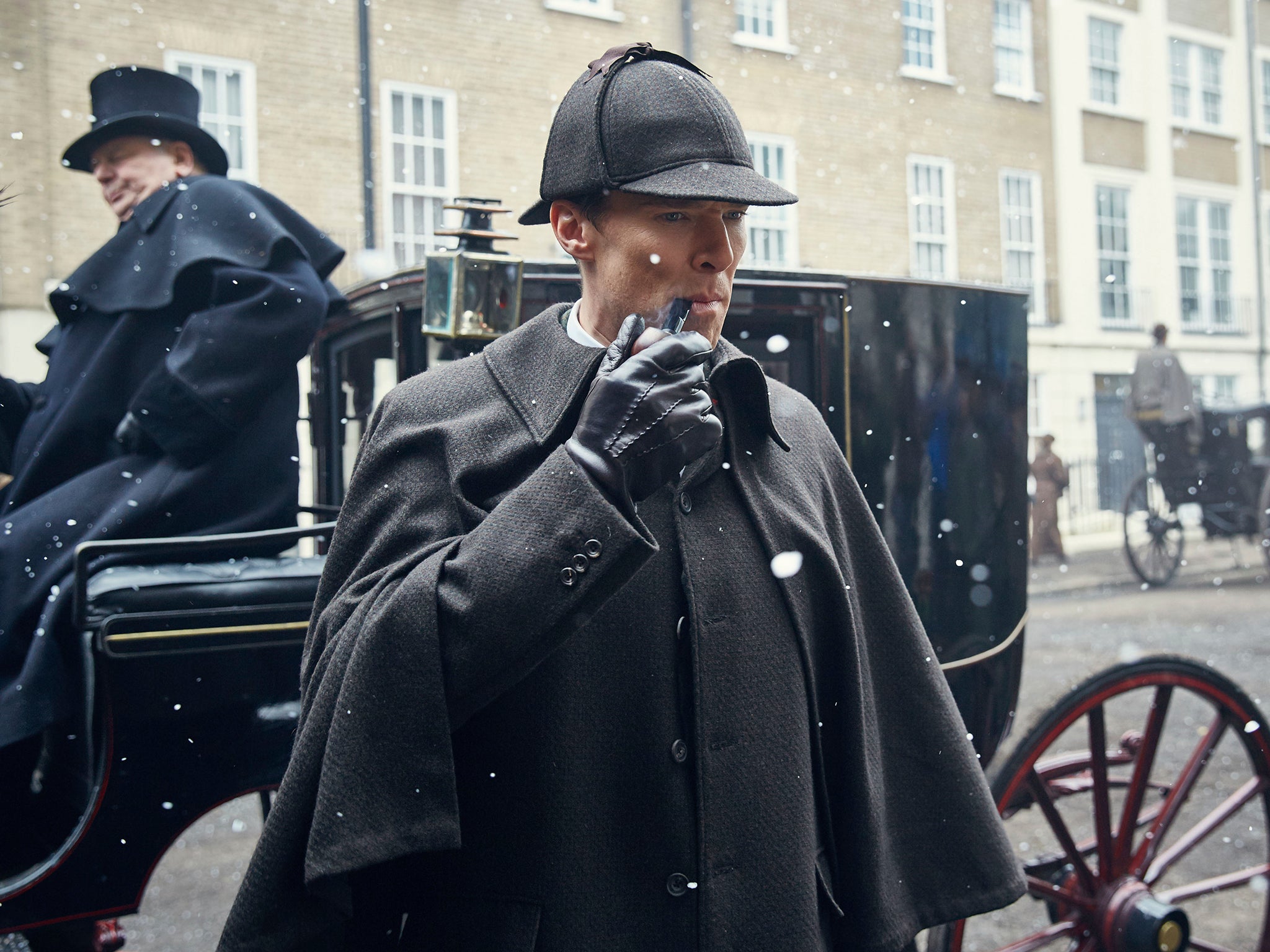A beleaguered BBC has lost its panache. We need it back
The few one-off plays that there are tend to be built on safe foundations

Halfway through the recent Sherlock special, it occurred to me that I was watching the perfect BBC holiday season show. It looked terrific. It had all right, familiar faces acting in it. There were costumes, carriages and London fog, but also that knowing nod to modernity which has become voguish of late. Self-referential jokes about events in previous episodes will have pleased loyal fans.
Although it all made for a perfectly amiable piece of holiday entertainment, there was something faintly manipulative and spirit-lowering about the production. It took a remark by, of all people, Julian Fellowes – Lord Fellowes of West Stafford as he is these days – to identify the problem.
Explaining why he was pleased that his series Downton Abbey had been taken by ITV rather than the BBC, Fellowes argued that the corporation had recently become “interventionist”. Its executives lived in “a rather Seventies bubble”, he said. “They do not see their obligation to reflect the differing viewpoints of the entire population, only the viewpoints of which they approve.” They should be more “polytheistic” in their position.
Normally there would be no reason to dwell on the views of TV’s Lord Snooty. The reference to the 1970s, now a useful decade for vague insults, is revealingly nasty, and the polytheistic argument would seem to be the usual too-many-lefties-at-the-Beeb complaint in light disguise. But that accusation of a busy, interventionist approach definitely rings a bell.
The BBC is under siege. Already having to work with huge funding cuts, it faces an uncertain future with a distinctly unsympathetic government in power. Its audience share has been whittled away by the drift towards cable TV. The establishment press, its appetite whetted by the expenses and Savile scandals, has never been more remorseless in its criticism.
Then there is that mighty and ever-increasing army of potentially affronted viewers, who watch its every move, ready to express shock and personal affront, with many a huffy reference to “licence fee-payers’ money”, at the first hint of any kind of inappropriateness.
The response to this storm of opposition has been to play safe. The BBC has become a careful, highly responsible state broadcaster. Where there was once a wonderfully dynamic individuality, there is now corporate competence. The unpredictable, the experimental, the controversial and the eccentric have been smoothed out to make way for reliably crowd-pleasing drama series, which are intelligent without being challenging, saucy without ever going too far, glossy cultural products which will appeal to the international market.
The few one-off plays that there are tend to be built on safe foundations: the story of a safely dead celebrity, or the making of Dad’s Army. Last year, classic (that is, over-familiar) stories were given a modern makeover, a particular low point being a politically correct version of Lady Chatterley’s Lover in which class, not sex, was the main theme.
There is something wrong when one finds oneself turning to Sky, Netflix or Amazon for programmes on the cutting edge of new writing and direction. Those organisations may have the huge advantage of being simply beholden to the market, without having to carry extra moral baggage. They are not under threat from politicians, nagged by the press or monitored by the viewers’ own appropriateness police.
The BBC, though, has an impressive tradition and culture on which to draw. In the past, it has had the gloriously bloody-minded self-confidence to back its own judgement and ability of its producers and directors. Miraculously, within a vast, public structure, it managed to nurture, encourage and protect individual talent. It stood up to politicians and stared down the prim and the disapproving.
That spirit of defiance badly needs to be revived. The BBC we have loved down the decades has not been afraid to celebrate the oddness and variety of this cussed, turbulent nation. From its early days, its best programmes were often precisely the ones – from Till Death Do Us Part, through the plays of Dennis Potter to The Thick of It – that caused most fuss.
Today it is genuinely difficult to think of drama series produced by the corporation, which are culturally or politically daring. There are brilliant and imaginative people working there but a terror of attracting the wrong kind of headlines is taking the edge and the interest off much of its output.
What Stephen Fry once called “a culture of fear” seems to have worked its way down from the top floor through the corporation so that business rather than creativity and ideas is what keeps it chugging along.
Those of us who love the BBC long for it to recover its old swashbuckling courage. We want to be surprised, occasionally shocked, to be reminded that the dreary voices of restraint, commonsense and public responsibility are not always right.
The alternative, unthinkable and appalling, is that the BBC becomes more of a state broadcaster, even more respectable in its views and the way it expresses them. It would be a disastrous mistake. However well it behaves, it will discover that the critics will continue to carp.
Whatever it does, the BBC is likely to find itself in hot water. It is when it becomes so staid that establishment voices stop criticising it that loyal viewers should start to worry.

Join our commenting forum
Join thought-provoking conversations, follow other Independent readers and see their replies